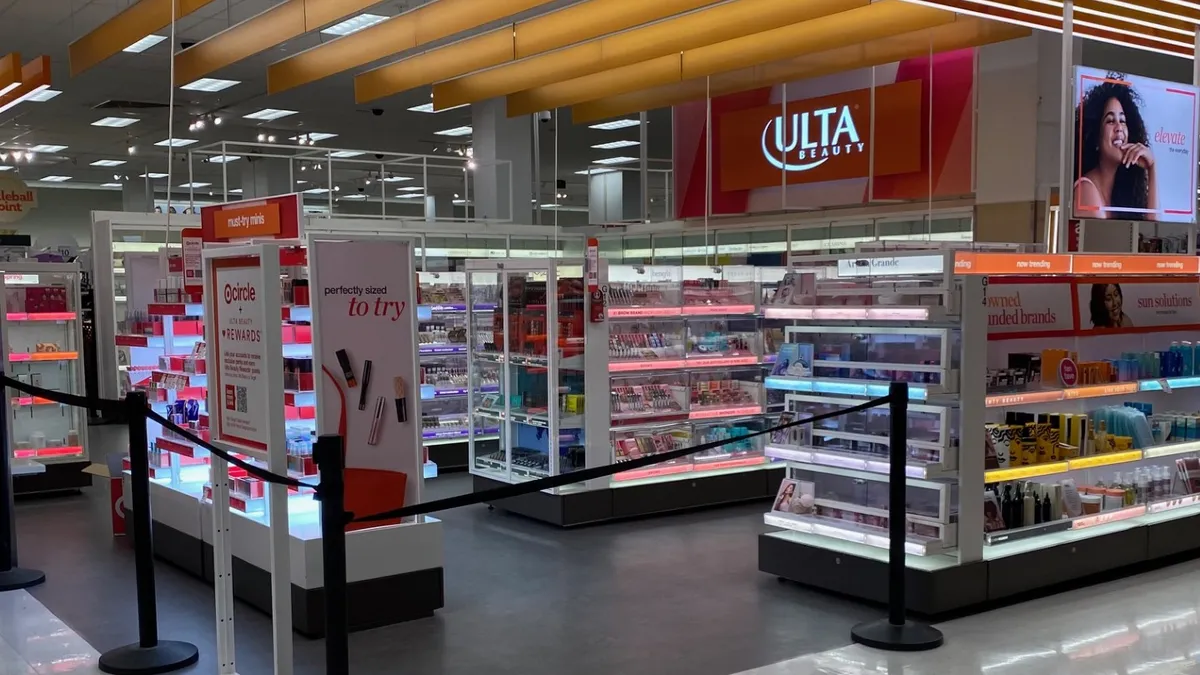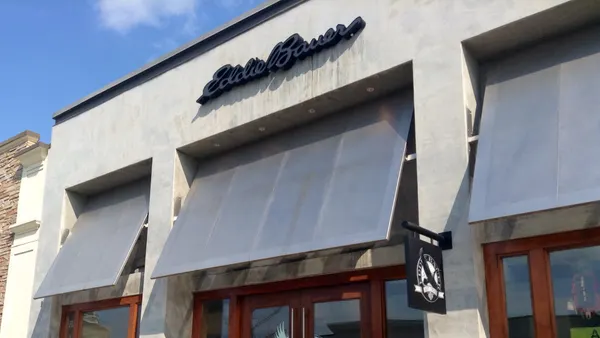Dive Brief:
- About five years after it started, the Ulta Beauty at Target shop-in-shop partnership will end, according to a joint press release Thursday.
- Both companies have mutually decided to conclude the partnership at the end of the current agreement in August 2026. Customers with linked Ulta Beauty Rewards and Target Circle accounts will continue to earn Ulta rewards points on eligible purchases until then.
- Target and Ulta “remain committed to delivering a seamless shopping experience and product availability through the end of the partnership, as well as continuing to support their teams and partners during the transition,” per the release.
Dive Insight:
The partnership's conclusion marks the end of a notable retail experiment between two major companies.
“We’re proud of our shared success with Ulta Beauty and the experience we’ve delivered together,” Target’s Chief Commercial Officer Rick Gomez said in a statement. “We look forward to what’s ahead and remain committed to offering the beauty experience consumers have come to expect from Target — one centered on an exciting mix of beauty brands with continuous newness, all at an unbeatable value.”
Target says it will continue to curate a differentiated beauty assortment for its customers, per the release. Meanwhile, Ulta emphasized the continuation of its omnichannel experience through the Ulta Beauty Marketplace launch later this year.
The decision comes after Ulta CEO Kecia Steelman in April told an audience at J.P. Morgan’s annual Retail Round Up Conference the beauty retailer would pause on its expansion of new shop-in-shops at Target and declined to say what the partnership would look like after 2025. Instead, Steelman added, Ulta and Target would focus on investing in the existing 600-plus stores during 2025.
The U.S. retailers first debuted the partnership in 2021 and met a goal to open 100 of the shop-in-shops later that year.
At the time, industry analysts and executives at both retailers sounded optimistic that the deal would bring a fresh assortment to Target and expose Ulta to new customers.
Years later, however, Target is undergoing a turnaround effort with a focus on merchandising changes, and Ulta is under new leadership, with Steelman taking on the CEO role in January after the surprise departure of Dave Kimbell.
Target — under the helm of longtime CEO Brian Cornell — is working to overcome slumping sales and consumer backlash related to its DEI approach. Since the launch of a multi-year merchandise revamp in March, Target has changed its price matching policy, debuted an exclusive collection with home goods brand Parachute, and refreshed or launched new private labels.
Target also isn't done with shop-in-shops altogether: The retailer in February announced it would open five Warby Parker shops this year, staffed by employees from the traditionally direct-to-consumer optical brand.
For Ulta, the partnership conclusion comes after it lost market share for the first time in 2024.
The CEOs for both companies have reiterated the desire to focus on retail fundamentals, such as store inventory and merchandise assortment.















